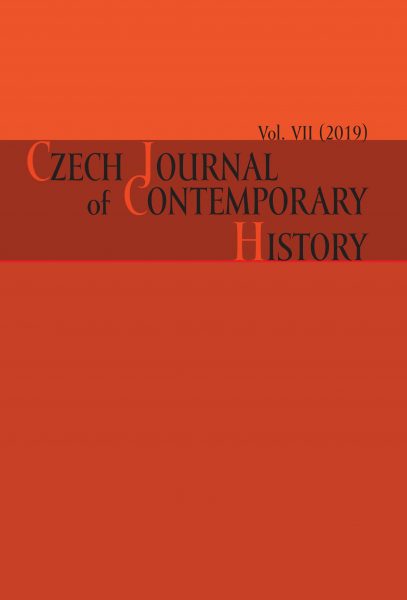Debates on Czechoslovakism and Czechoslovaks at the End of the Federation, 1989–1992
Debates on Czechoslovakism and Czechoslovaks at the End of the Federation, 1989–1992
Author(s): Tomáš Zahradníček Subject(s): Political history, Social history, Post-War period (1950 - 1989), Transformation Period (1990 - 2010)
Published by: AV ČR - Akademie věd České republiky - Ústav pro soudobé dějiny
Keywords: Debates; Czechoslovakism and Czechoslovaks; End of the Federation; 1989–1992;
Summary/Abstract: This article focuses on the early post-1989 period when the “Slovak question” returned with full force to the gradually democratizing political arena and surprised Czech society and its budding political elite, who were both unprepared to address the question. The author reveals the imbalance of “Czechoslovakism” – its story and historical lesson – between the two sides of the once united country. In Slovakia, Czechoslovakism was “part of the living language of politics and journalism of the Slovak experience,” whilst in Czech society, its reception was lukewarm and superficial. Thanks to his insight into federal and republican politics in the early days of democratic revival, the author presents his readers with a fascinating breakdown of the factual-historic presence of Czechoslovakism at a time when its word-historical presence was minimal. He analyzes how Slovakia stepped into democracy by exercising its national sovereignty in federal structures and played as active a role as ever in Czech-Slovak relations. Meanwhile, the Czech side remained merely reactive. In contrast to the Slovak scene, Czechs were engaged in a “politics of returns,” buttressed by a resolutely idealized image of the First Republic and a renewed spirit of “Czechoslovakness,” which was deceptively refreshing for Czech society. These were two political worlds, able to find a common denominator only with great effort. The author explains that Czech politics were de facto forced – by the Slovaks, who were developing federal principles and creating policies for national sovereignty – into lackluster policy-making of their own national sovereignty. Even so, these forced politics had their advocates, such as national-socialist politicians in the Czech National Council at that time.
Journal: Czech Journal of Contemporary History
- Issue Year: VII/2019
- Issue No: 7
- Page Range: 143-161
- Page Count: 19
- Language: English

